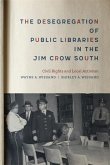Invisible Enemy outlines how "colorblind" approaches to discrimination ensured the perpetuation of racial inequality in the United States after the 1960s, and how this in turn necessitated further struggles on behalf of black rights in the post-civil rights era. The book examines the hidden forms of racism that survived beyond the 1960s, highlighting their impact on black Americans as well as on American politics and society as a whole. It describes the various forms of black activism -- ignored in many histories of the freedom struggle -- that continued at both national and local levels. The final chapter conceptualizes the post-1960s freedom movement as part of a global struggle for justice in response to the spread of free market capitalism around the world in the late twentieth century. In an approach that aims to deepen readers' awareness of the nature of the nation's racial problems, de Jong emphasizes that racism must be understood historically, as the product of specific laws and policies that ensured an unequal status for African Americans. Invisible Enemy illuminates the complexities of modern racism and enhances our understanding of the struggles for racial equality and social justice.
Hinweis: Dieser Artikel kann nur an eine deutsche Lieferadresse ausgeliefert werden.
Hinweis: Dieser Artikel kann nur an eine deutsche Lieferadresse ausgeliefert werden.
"The book is an important contribution in understanding a still largely overlooked period of contemporary history. Highly recommended. All levels/libraries." (Choice , 1 April 2011)
"Even so, the thematic unity and clear elucidation of the nature and persistence of systemic racism in American society and of white Americans ' blindness to it makes the book a valuable study that
should engage student audiences and the reading public." (Journal of American History, 1 March 2011)"A remarkable scholarly work that illuminates why thestruggle for equal rights did not achieve full racial equality. . .de Jong draws attention to the oppressive economic andpolitical forces that have yet to be overcome, even asAmericans celebrate the dream of Martin Luther King,Jr."
Clayborne Carson, Founding director of the Martin Luther King,Jr. Research and Education Institute at StanfordUniversity
"De Jong writes with passion and grace. Herhistorically-grounded treatment of both racism and black Americans'self-directed struggles for justice make this study an invaluableguide to the complexities of race in contemporarysociety."
William L. Van Deburg, author of New Day in Babylon:The Black Power Movement and American Culture, 1965-1975
"Even so, the thematic unity and clear elucidation of the nature and persistence of systemic racism in American society and of white Americans ' blindness to it makes the book a valuable study that
should engage student audiences and the reading public." (Journal of American History, 1 March 2011)"A remarkable scholarly work that illuminates why thestruggle for equal rights did not achieve full racial equality. . .de Jong draws attention to the oppressive economic andpolitical forces that have yet to be overcome, even asAmericans celebrate the dream of Martin Luther King,Jr."
Clayborne Carson, Founding director of the Martin Luther King,Jr. Research and Education Institute at StanfordUniversity
"De Jong writes with passion and grace. Herhistorically-grounded treatment of both racism and black Americans'self-directed struggles for justice make this study an invaluableguide to the complexities of race in contemporarysociety."
William L. Van Deburg, author of New Day in Babylon:The Black Power Movement and American Culture, 1965-1975








